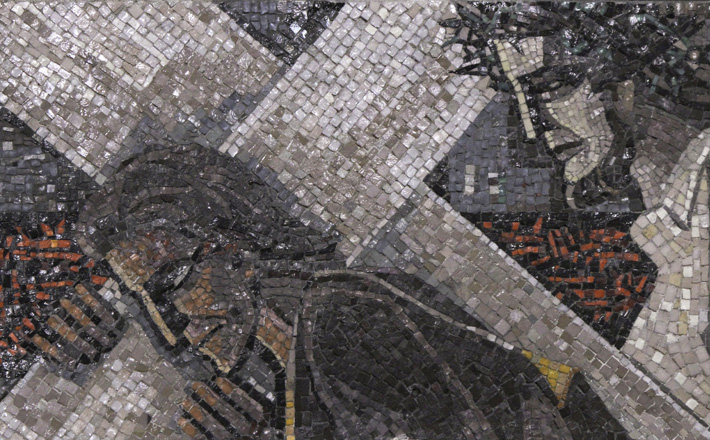Commentary on Jeremiah 20:7-13
Jeremiah’s ministry extended for some forty years (about 625-585 BC).
At the mid-point of his ministry, the Babylonian empire under Nebuchadnezzar began expanding in the Middle East and Israel’s existence was threatened. Jeremiah warned Israel about this threat, believing that he had received such warning words from God.
But the people denounced him (see 20:10). Jeremiah feels caught in the middle, squeezed between a God who has insisted that he preach this difficult word of warning and a people who refuse to believe him. He is stuck between an insistent God and a resistant people. This situation occasions for the prophet a vocational crisis.
In the midst of this crisis, he voices six laments (Jeremiah 11-20). In essence: God, I’m doing your bidding, so what’s with all this trouble I have to endure; the people are engaged in a whispering campaign against me. Why did you get me into this mess? You didn’t tell me it would be this difficult. It would have been better had I not been born than have to live through this kind of vocational hell (see 20:14-18).
How can Jeremiah talk to God like this? He goes on and on! “The word of the Lord has become for me a reproach and derision all day long” (20:8). “Cursed be the day on which I was born! …Why did I come forth from the womb to see toil and sorrow and spend my days in shame” (20:14, 18)? Earlier, Jeremiah’s words to God are even more sharply stated (15:18): “Why is my pain unceasing, my wounds incurable, refusing to be healed? Truly, you [God] are to me like a deceitful brook, like waters that fail.”
These laments of Jeremiah recall many (60) psalms, often called lament psalms. For example, Psalm 13:1-2: “How Long, O Lord? Will you forget me forever? How long must I bear pain in my soul and have sorrow in my heart all day long?”
Or, Psalm 44:23: “Rouse yourself! Why do you sleep, O Lord? Wake up, do not cast us off forever.” Or, listen to Lamentations (5:20), an entire book of laments, often related to Jeremiah: “Why have you forgotten us completely? Why have you forsaken us these many days?” Interestingly, the ELW hymnbook has a lament section of eight hymns. Their inclusion constitutes a new recognition of the importance of giving God’s people lamenting words to voice.
How can these biblical characters speak to God like that? But they do, easily and often. Do they not model for us an openness to speak to God in comparable ways? Can we not voice to God our deepest questions and complaints, no holds barred? Certainly these kinds of prayers can be an important way for us to speak to God in difficult times. Given any number of personal crises we may face, these kinds of prayers are a genuine gift.
In your thinking about these laments, a great deal depends upon the kind of God you have. In reflecting on the way in which people image God in the church and elsewhere, opinions tend toward two extremes. On the one hand, God is an uninvolved overseer, sitting on the front porch of heaven watching the world go by; as one layperson told me: “For me, God is an absentee landlord. Your calls are seldom returned and nothing much gets done.”
Or, we go to the other extreme and image God as an absolute monarch, in total control of things, micromanaging the world. But, as one student voiced: if God is in control, then given how unruly we all are, wouldn’t we have to score God a crashing management failure?
Another way to speak of such extremes: On the one hand, God is so above and beyond this world that every prayer is a roaming cell phone call that cuts in and out. Or, at the other extreme, God is buddy-buddy, takes no critical stance, is never in your face. Never is heard a discouraging word and the skies are not cloudy all day kind of God! We sing only praise songs here. Well, Jeremiah and many other biblical characters clearly sing more than praise songs.
Sometimes when we pray, we think of God as a superman, superwoman, who hears our prayers and, faster than a speeding bullet, is able to accomplish anything and everything. With such a God, no constraints or restraints are in view, and the only issue falls back on whether the one who prays has enough faith. But, we often forget that more is at work in these situations than our prayers and God’s will. And it may be that some factors are so resistant to the will of God that God’s will does not get done. And God’s heart is the first to break and God’s tears are the first to flow.
When thinking about prayer and God, or any other important matter of faith, one of the most important things to keep in mind is that God has established a genuine relationship with us. Think for a minute about a person with whom you are closely related. If that relationship is to be genuine, what is necessary for it to be so?
Certainly a key factor would be healthy communication, being able to speak openly and honestly with each other. God understands that for our relationship with God to be genuine, our voice counts, too. God is not the only one who has something important to say. And so God gifts us with prayer, including speaking our mind to God about whatever we may endure. God values what we have to say; God honors what we bring to the table.
To conclude: Laments are a God-given way for us to make a situation more open for God, to give God more room to work in our lives. We can be confident that God always has our best interests at heart and will work with our prayers and other factors to create the best possible future.
God is open to taking new directions in view of new times and places, in view of the interaction within the relationship. Yet, never changing will be God’s steadfast love for you and God’s faithfulness to the promises God has made to you. You can trust God to keep promises.


June 22, 2014